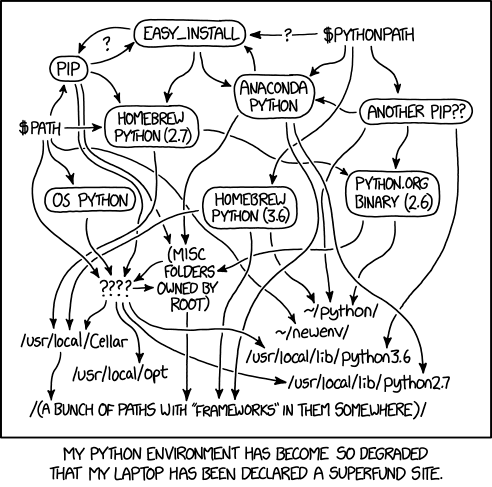First Thoughts on Tach
Note: As of 2025-06-03, Tach is no longer being maintained. There’s a user fork named dtach that is seeing some activity but I’m unsure of its future.
First Thoughts on Tach: A New Tool for Python Dependency Management

“Python Environment” by xkcd
Understanding Tach
Tach is an open-source tool designed to enforce dependencies within Python projects. Built with a modular architecture, it allows developers to define explicit module boundaries and automatically detects cross-module dependencies, ensuring that only permitted interactions occur within a codebase. Tach operates during the development phase, so it has no impact on runtime performance.

Output of tach show tach
Key Features of Tach:
- Modular Architecture: Developers can define and enforce dependencies between Python modules, supporting a modular monolithic architecture.
- Incremental Adoption: Teams can adopt Tach gradually, applying it to specific parts of the codebase as needed.
- No Runtime Impact: Dependency enforcement happens during development, ensuring runtime performance remains unaffected.
- Interoperability: Tach integrates with command-line interfaces, hooks, and continuous integration pipelines.
Tach in the Context of Existing Tools
Traditional Python dependency management and packaging tools like pipenv or poetry manage external package dependencies and virtual environments. These tools, while essential for handling third-party packages, do not enforce internal module boundaries within a project. Tach fills this gap by enforcing strict interfaces and dependencies between internal modules, complementing existing tools.
Potential Integration Scenarios:
- With pip: Pip manages external packages, while Tach enforces internal module dependencies, ensuring the codebase adheres to defined architectural boundaries.
- With pipenv or poetry: These tools manage virtual environments and external dependencies. Integrating Tach adds internal dependency enforcement, providing a comprehensive dependency management strategy.
- In Monorepos: For large codebases or monorepos, Tach enforces dependencies between different projects or modules, maintaining separation and preventing unintended interactions.
Wrapping Up
Tach offers a new approach to Python dependency management by focusing on internal module dependencies. Its ability to enforce strict interfaces and promote modular architecture makes it a valuable addition to the Python developer’s toolkit. I’m hoping that emerging tools like Tach will lead to a more robust and maintainable codebase, effectively managing both external and internal dependencies.
For more information visit the official tach GitHub repository.
